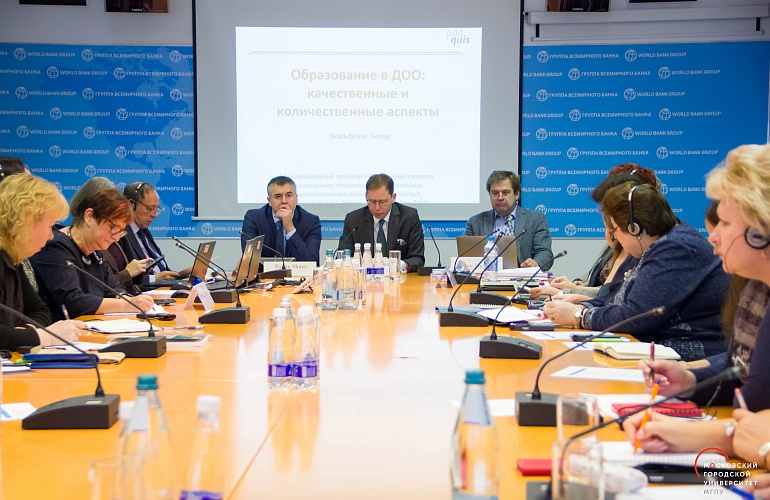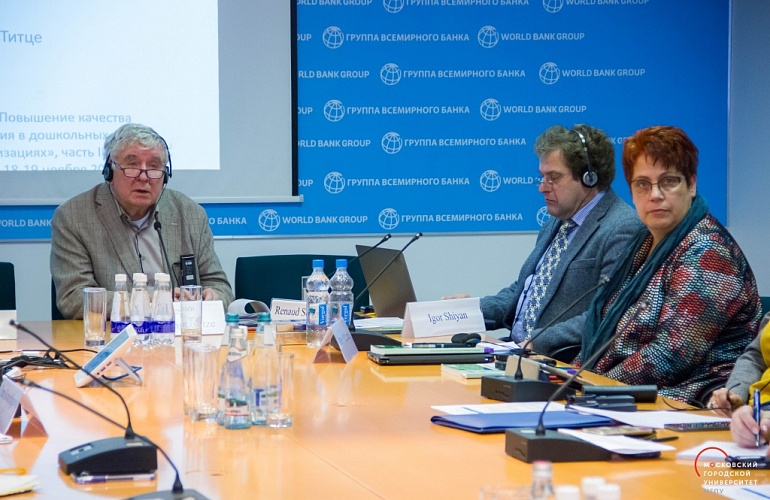On November 18–19, the pre-school education experts convened to discuss good practices at the international workshop ‘Improving pre-school education quality’. The event was arranged by the Laboratory of Child Development at the MCU’s Institute of System Projects in collaboration with the World Bank and the Research Institute for Pre-school Education in Berlin PadQUIS gGmbH.
The workshop featured teachers and researchers representing educational organisations from 15 regions of Russia, as well as experts from MCU and the International Pedagogical Academy for Pre-school Education.
Renaud Seligmann, the World Bank’s Country Director for the Russian Federation, opened the workshop by emphasizing the importance of international cooperation for education development, and the significance of projects conducted by MCU.
Professor Wolfgang Tietze, head of the PadQUIS gGmbH, proposed for consideration the concept of a good practice, and talked about the development of quality criteria by joint efforts of education experts and actual teachers. These criteria were included in ‘The German Education Quality Catalogue’. Professor Tietze emphasized the importance of systematic approach and collaborated effort for quality improvement in pre-school education.
Professor Igor Shiyan, Deputy Director of the Institute of System Projects and Head of the Laboratory of Child Development, spoke about the research conducted by the Institute’s staff towards improvement of measurement tools and development of education quality.
The program of the workshop comprised reports on the activities by regional participants. Elena Kotochigova representing the Institute of Education Development in Yaroslavl shared the experience of implementing the methodology of collaborative work that involved kindergarten teachers. Dorthe Mullheims, management consultant and teacher within the ‘Structogram’ system, initiated discussion on the work requirements for the QuiK Program developed at the PadQUIS gGmbH and the opportunities it offers. Dorthe Mullheims explained that the quality improvement goes from bottom to top and teachers should consider the difficulties of their work as challenges and sources for improvement.
The participants emphasized the importance of group discussions of education quality criteria and targets, as well as the feedback the teachers and group leaders receive during collaborative work.
The workshop resulted in drawing the key trajectories of joint international activities and practices exchange. The participants decided to establish a platform for professional discussions on pre-school education quality improvement. Professor Tietze noted the particular value of such dialogue for development of the expert community.


